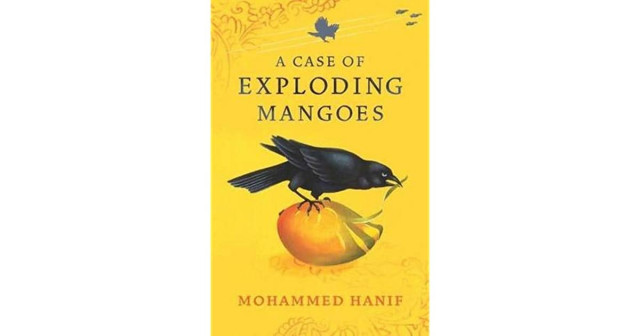‘A Case of Exploding Mangoes’ finally releases in Urdu
Mohammed Hanif’s 2008 satire depicts the final days of Ziaul Haq’s rule

The former fighter pilot-turned-journalist, novelist and librettist is best known for the 2008 novel which chronicles the final days of hardline dictator General Zia-ul-Haq's rule and the myriad conspiracies behind the plane crash that killed him in 1988. Zia, a pious and far-right dictator in real life, is portrayed by Hanif as a paranoid buffoon backing the Afghan jihad against the Soviets, while battling a case of rectal worms.
Although Mangoes is generously salted with heavy doses of humour, the book also unleashes harsh criticism at Pakistan's military. In it, the military relies on torture, extrajudicial murder, and covertly supports a jihadist insurgency to pursue its goals - accusations made by rights activists in real life but which the military denies and rarely allows to be repeated by the Pakistani press.

"I love the army. Some of my best friends have died in combat. I have nothing against the institution," explained the 55-year-old, whose own years in uniform provided much of the granular details of military life featured in the book. "But if the military does something wrong, if they get involved in politics, if they disappear people, then I have to write about it."
While Mangoes was set in Zia's Pakistan, it was first released in English during Pervez Musharraf’s time. It coincided with Hanif's return to the country after nearly 12 years in London with the BBC.
Internationally, the novel earned glowing reviews and was long-listed for the Booker Prize, with critics comparing Hanif to famous satire writers Joseph Heller and Kurt Vonnegut. But despite the widespread praise, more than a decade passed before the novel was translated into Urdu.
According to Hanif, a publisher "sat" on the translation for years, citing potential repercussions. But "the time for a backlash has passed," said the publisher Hoori Noorani. "The book has been translated into all major languages of the world. Even though it is a satire and humour can be subversive, it depicts a dark part of our history."

Even so, Mangoes’ Urdu release comes as authorities increasingly crack down on all forms of dissent. Journalists have complained of the worst censorship since Zia's time, while opposition leaders are rounded up in a controversial anti-corruption campaign.
As such, the Urdu edition "is "very timely," said Harris Khalique, a poet and rights activist. “Thirty years after the assassination of Zia, writers and journalists are experiencing similar pressures."
After Mangoes, Hanif published two more novels: Our Lady of Alice Bhatti (the story of a Christian nurse fighting against patriarchy) and last year's Red Birds, which focuses on war and refugees. He has also helped co-create a much-anticipated opera about Benzair Bhutto, all while pumping out regular op-eds for The New York Times.
As a columnist, Hanif has established himself as one of the premier voices on all things Pakistan - from the gender politics of making roti to criticism of the army. But like most others, he admits to "self-censoring" out of fear of putting his family at risk. "I have pushed the boundaries. But I'm more careful than I've ever been in my life now."
Have something to add to the story? Share in the comments below.



















COMMENTS
Comments are moderated and generally will be posted if they are on-topic and not abusive.
For more information, please see our Comments FAQ